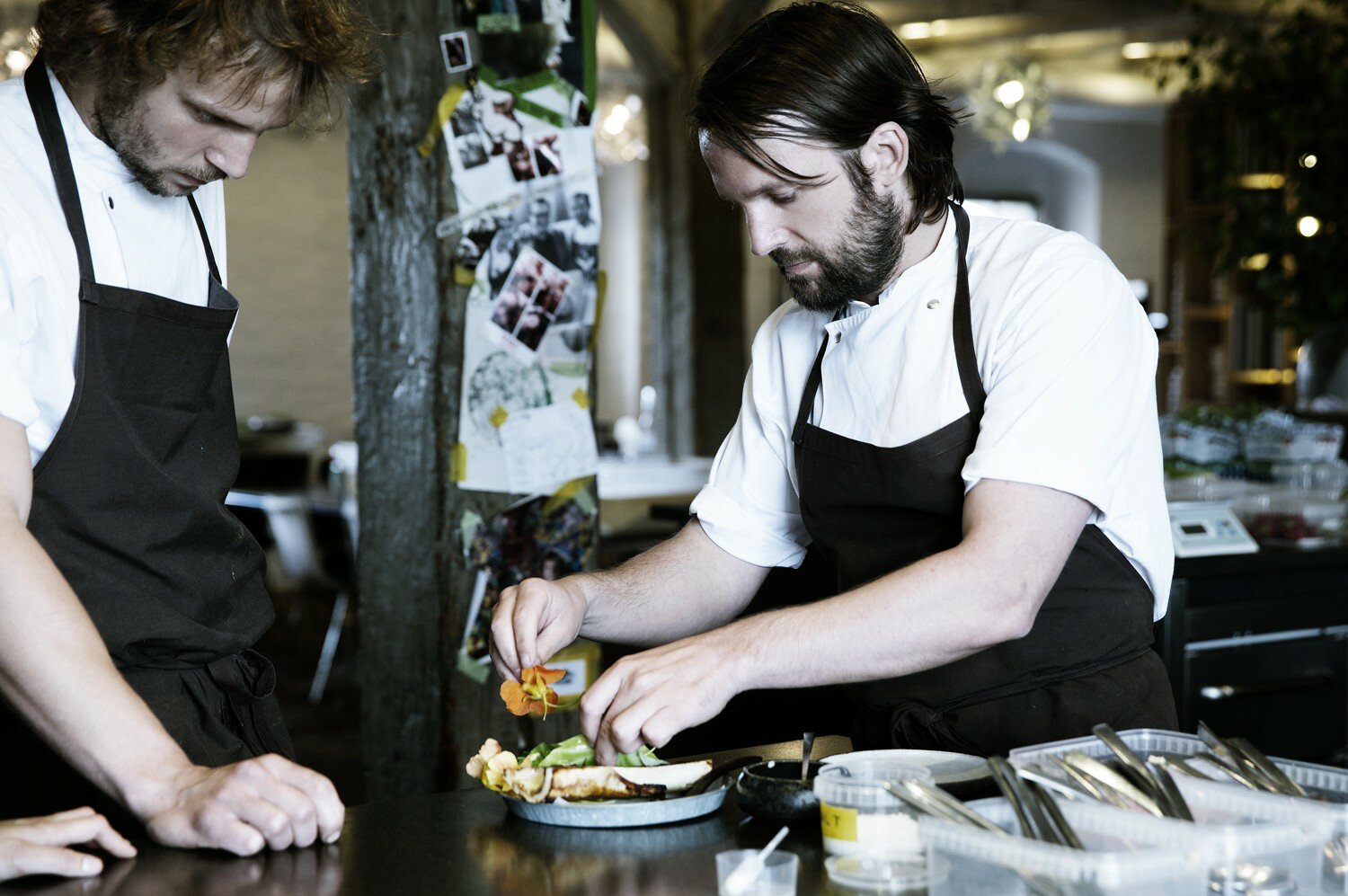Early one morning in the middle of June, the best chef in the world woke to find himself homeless. Not permanently, it is true, and not through any fault of his own. But homeless nonetheless. The day before, he had moved his family out of the apartment on the Copenhagen square Gammeltorv that they had rented for years. Just one night amid the exposed wiring and non-functioning shower of his still-being-renovated new house, however, convinced him it was not yet liveable.
As he set off to work that morning, he went over the things he had to do: taste a few new dishes, hold a succession of meetings, and oversee lunch and dinner service for the 100 or so people lucky enough to get a reservation that day. But he would also have to find a place to sleep that same night.
I have known René Redzepi for five years. We met for the first time in the spring of 2009, when he was helping to lead what would become an extraordinary gathering of chefs, called Cook it Raw. As a journalist who writes frequently about food, I was sent to Denmark to cover the story as Redzepi and the other organizers of the event led their small band around the countryside outside of Copenhagen, introducing them to the local bounty.
Back then, foraging had not become the trend that it is now, and although his restaurant Noma had just earned its second Michelin star, everything about Redzepi felt new and exciting. After the event was over, I followed his career, and had the chance to write about him on other occasions. I watched how, within an extremely short period of time, he became a culinary leader, one of the very most influential chefs in the world, with everything—good and bad—that goes along with that.
What did it mean now, to be René Redzepi? As the chef of Noma, which recently took back the title of World´s Best Restaurant, the 36-year-old gets the kind of acclaim and opportunities (to say nothing of the bookings), that most people who spend their professional lives in a kitchen can only dream of. But I knew from before that the qualities that put him on top – a restless mind, a driving sense of ambition – also prevent him from simply enjoying the fruits of his efforts. How did he balance the global celebrity with the considerably more down-to-earth demands of running a kitchen? How did he handle the adoration and acclaim, to say nothing of the schadenfreude he became a target of because of it?
Normally René Redzepi would make porridge for breakfast, but the stove for the new house has not arrived yet, so they will have to grab breakfast out. He finds a few open boxes and helps dress his daughters: striped pink leggings for three-year-old Genta, a black tutu from her collection for Arwen, six years. By 8:30, they and his wife Nadine are folded into the cart of a cargo bike, and he is pedalling madly through the streets of central Copenhagen. They make the bus that will take the girls to their forest school with bare minutes to spare. There are kisses all around.


